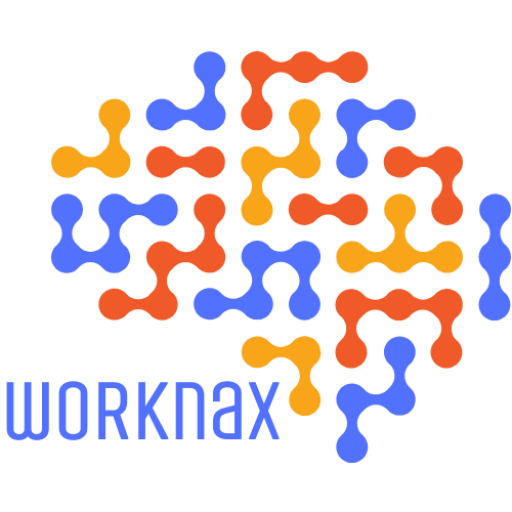Anúncios
Blockchain technology has entrenched itself firmly in a multitude of sectors worldwide, with education being a prominent area of innovation and transformation. As educational institutions navigate the digital landscape, the advent of blockchain introduces a host of creative solutions tailored to meet the evolving needs of learners and educators alike. It is rapidly changing how educational credentials are issued, verified, and shared among stakeholders, thereby setting a new standard in the verification of academic achievements.
Amid rising concerns about credential fraud and the authenticity of educational qualifications, blockchain serves as a secure digital ledger aimed at safeguarding academic records. By leveraging its decentralized system, each transaction is transparently recorded, making it virtually impossible to alter historical data without a consensus from the network, which enhances accountability. Consequently, this technology ensures a trustworthy method for validating educational credentials, addressing long-standing issues that have plagued the educational sector.
A particularly compelling application of blockchain within the education sector is in the realm of credential verification. Traditionally, the process of validating a degree can be complex, often involving time-consuming and labor-intensive work that spans weeks or even months. By streamlining the verification process through blockchain, institutions can dramatically accelerate the pace at which credentials are confirmed. This rapidity not only saves significant time but also strengthens the credibility of educational qualifications, providing assurance to both students and employers.
In addition to improving credential verification, blockchain paves the way for a decentralized platform for academic records. With this innovative model, each student can possess a digital wallet that securely stores their certifications, transcripts, and various achievements. Empowering students in this manner allows them to have greater control over their credentials and enables them to share their academic accomplishments swiftly with prospective employers. In a competitive job market, this instant access to verified qualifications can significantly enhance a student’s employability and market appeal.
Many educational institutions are beginning to pilot blockchain-based verification systems, highlighting the growing acceptance of this technology within the sector. For instance, the Massachusetts Institute of Technology (MIT) has taken a pioneering step by issuing digital diplomas on a blockchain platform. This forward-thinking initiative enables graduates to share their credentials securely and efficiently, eliminating the need for intermediaries in the verification process. As more universities recognize the potential of blockchain, we can anticipate that similar models will proliferate across educational landscapes worldwide.
Furthermore, the implementation of blockchain technology promotes increased trust among all stakeholders involved in the education ecosystem. The transparency that blockchain provides leads to more accurate records, fostering an environment where students, employers, and institutions can confidently interact. By reducing the risk of manipulation and fraudulent activities, blockchain helps cultivate a healthier academic atmosphere, enhancing the relationships between students and their respective educational institutions.
Another noteworthy application of blockchain in education lies in the emerging field of micro-credentials and skills recognition. As the educational landscape evolves toward emphasizing lifelong learning, more learners are seeking acknowledgment for skills and short courses acquired outside traditional degree programs. Through blockchain, verifiable micro-credentials can be issued, allowing learners to gain formal recognition for these diverse achievements. This flexibility not only acknowledges the importance of non-traditional learning pathways but also aligns with the demand for more versatile and adaptive skill validation systems.
Micro-credentials carry particular value in industries that are rapidly evolving, such as technology and healthcare. With blockchain, learners can easily update their credentials as they acquire new skills or complete additional training. This responsive approach ensures that the education system stays relevant and attuned to ever-changing industry requirements, ultimately benefiting both students looking for employment and employers searching for suitably skilled candidates.
In addition to credentialing, blockchain has the potential to enhance access to educational resources through the establishment of decentralized platforms. Learning materials, courses, and assessments can all be stored, shared, and distributed on a blockchain network. This method decreases costs typically associated with proprietary educational content, rendering quality education more accessible to a wider range of students and communities. The potential to create an open-source educational ecosystem can reshape how knowledge is shared across boundaries.
By promoting equitable access to information and educational resources, blockchain technology can play a pivotal role in bridging educational gaps globally. Students residing in remote or disadvantaged areas may gain access to high-quality learning materials, effectively dismantling traditional barriers to education. Consequently, this has the capacity to foster more equitable educational opportunities for all, leveling the playing field and enriching the knowledge base within underrepresented communities.
Moreover, blockchain technology is well-suited to support peer-to-peer learning models, where students can securely exchange knowledge and resources. Additionally, blockchain’s transparent record-keeping encourages collaboration while assuring that each individual’s contributions are accurately documented. Such a collaborative learning environment not only promotes teamwork but also enriches the overall educational experience by engaging students and sparking innovation in teaching and learning practices.
Despite the considerable promise that blockchain holds for education, several challenges must be addressed for successful adoption. Central to this is the need for a cultural shift among educational institutions, where educators and administrators must embrace technology while critically evaluating and rethinking traditional administrative processes. Training and awareness programs can bridge this gap, providing a forum to discuss and highlight the numerous advantages blockchain can bring to institutional operations and student engagement.
Data privacy and security also emerge as pivotal concerns in the implementation of blockchain within the educational sector. Stakeholders must ensure that personal information is kept confidential while utilizing blockchain’s benefits for data management. By utilizing advanced encryption techniques and permissioned access, institutions can safeguard sensitive data while still capitalizing on blockchain technology’s many benefits in administrative processes and credentialing.
Another crucial consideration involves the need for robust technological infrastructure. Effective implementation of blockchain solutions necessitates significant investment in hardware, software, and employee training. Educational institutions must conduct thorough feasibility assessments to determine the viability of blockchain adoption and forge partnerships with technology providers to craft tailored systems that address their unique needs and challenges.
As the educational landscape continues to evolve, regulatory frameworks must also adapt to accommodate blockchain technology. Policymakers should prioritize developing clear guidelines regarding data ownership, privacy, and verification practices. Collaborative efforts between educational institutions and government agencies are vital in fostering a regulatory environment conducive to innovation while ensuring that all stakeholders’ interests are adequately protected.
The involvement of industry partners in blockchain initiatives is also critical. Collaboration between educational institutions and businesses can enhance pathways for curriculum relevance and targeted skill development. Such partnerships can ensure educational programs remain closely aligned with industry demands, resulting in graduates with the requisite skills and competencies that employers value.
Blockchain technology can significantly contribute to an individual’s lifelong learning journey. As the importance of continuing education increases in today’s rapidly changing environment, systems enabled by blockchain can allow individuals to showcase their commitment to personal and professional growth. By accumulating a comprehensive record of their learning experiences, individuals can better demonstrate their capabilities and qualifications over time, empowering them in their careers.
As blockchain technology continues to mature, we can anticipate an influx of innovative applications within the educational landscape. For example, smart contracts could be utilized to automate various administrative tasks, such as student enrollment, grading, and tuition payments. This kind of automation would alleviate institutional burdens, allowing educators to redirect their focus toward teaching and enriching the student learning experience.
To reap the myriad benefits that blockchain offers, educational institutions must take a proactive and strategic approach to adoption. Early adopters can emerge as pioneers, offering valuable insights into successful implementations and best practices. By sharing lessons learned and collaborating with others on blockchain initiatives, these institutions can guide their peers through the complexities and challenges inherent in adopting this transformative technology.
The transformation enabled by blockchain technology in education is both profound and multifaceted. As new models and methodologies arise, educational institutions must remain agile and responsive to change. They should carefully consider the implications of blockchain technology, ensuring alignment with their mission to provide quality education accessible to all learners.
In the unfamiliar and evolving educational system, it is crucial for educators to cultivate an atmosphere of creativity and adaptability. By encouraging experimentation and exploration of blockchain solutions, institutions can foster innovative ideas and approaches to teaching and learning. Embracing technological advancements, such as blockchain, will benefit not only students but educators as well.
In summary, blockchain technology possesses the capacity to radically transform education by enhancing credential verification processes, empowering students, and broadening access to educational resources. The future of blockchain in education lies in the collaboration of educational institutions, industry partners, and policymakers, all working together to shape its development and application in meaningful ways. As educators delve deeper into the potential of blockchain, the ultimate aim remains clear: to create a more equitable, accessible, and efficient educational system for all learners. The journey towards this new educational paradigm has just begun, and with continuous innovation, the potential for transformative change remains boundless.



